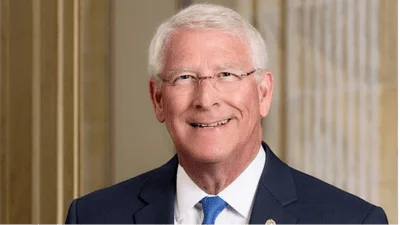Dear Democratic Colleague:
I am writing to provide an update on the fiscal year 2022 appropriations process.
Because of your leadership, the House Appropriations Committee reported all 12 annual appropriations bills out of Committee and passed nine of the 12 off the House Floor before the August District Work Period. Delays in the Senate meant that a short-term Continuing Resolution was needed to extend government funding through December 3. Last month, Senate Democrats released their remaining appropriations bills after approving three bills in Committee over the summer.
With the Democratic proposals in hand, there is no reason why we cannot proceed to conference negotiations between the House and Senate to produce bipartisan appropriations bills for fiscal year 2022. I have directly engaged with House and Senate Appropriations Committee leadership to begin these discussions. Unfortunately, we continue to await House and Senate Republicans coming to the table with a proposal as a next step in the process to reaching an agreement on appropriations.
If there is no proposal, the consequences of not acting are reckless, irresponsible and would prevent us from making critical funding adjustments in our federal budget to address ongoing and new challenges the American people face.
For our communities, the well-being of our veterans, and our national security, I continue to ask my colleagues on the other side of the aisle to join in negotiating a path forward. Avoiding a full-year Continuing Resolution (CR) is critical:
* For our communities, an omnibus appropriations bill is the only way to make investments that create jobs, bolster our public health infrastructure and medical research, strengthen our schools, protect our air and water and advance environmental justice, combat the opioid epidemic, and support core services such as food safety and consumer product inspections. Under a full-year CR, historic investments in the public education system, such as the proposed increase for Title I-A Grants to Local Educational Agencies, will be denied. (I have attached a and letters from the and the emphasizing the areas that would suffer under a full-year CR.)
Additionally, a full-year CR would mean that Community Project Funding that members on both sides of the aisle secured will not be enacted. This funding has the potential to make a significant difference in the lives of people that we represent, and it is imperative that these resources not be denied to communities in need.
* For our veterans, an omnibus appropriations bill is the only way to provide sufficient funding for veterans’ benefits, reduce backlogs for veterans and their families seeking assistance, and meet the needs of the VA’s health care system. In fact, under a full-year CR, there would be a $7 billion shortfall in funding for mandatory veterans’ benefits. (I have attached a letter from, including the American Legion and the Veterans of Foreign Wars, strongly supporting fiscal year 2022 appropriations and opposing a full-year CR.)
* For our national security, an omnibus appropriations bill is the only way to support defense readiness and modernization, sustain good-paying American jobs, secure our cyber infrastructure, and strengthen American leadership abroad. In a full-year CR, a pay raise for military personnel would not be funded, while other funds would be misdirected to a war we are no longer fighting. (I have heard directly from distinguished national security leaders about the harms caused by a full-year CR, OMB included information on these priority areas in their, and letters from the and the are attached.)
With these needs so evident, I will continue to fight for a negotiated omnibus appropriations bill.
I have made clear to my Republican counterparts that we are ready to negotiate in good faith, with the understanding that compromises on both sides will be needed to reach the bipartisan, bicameral agreement to complete this process.
Republicans have demanded that the Democrats separate and recede on an unknown number of policy issues before conference negotiations get underway. This breaks from past practice of negotiating the appropriations bills in their entirety. I am committed to resolving all policy and funding items as part of the normal bicameral, bipartisan negotiations that always govern the annual conference process.
But beginning those robust discussions requires Republicans to come to the table with their own proposal for fiscal year 2022 appropriations, so that we can reconcile our differences and enact an omnibus in December.
Updates will be forthcoming.
Sincerely,
Rosa L. DeLauro
Chair
Committee on Appropriations
Source: U.S. Department of HCA









